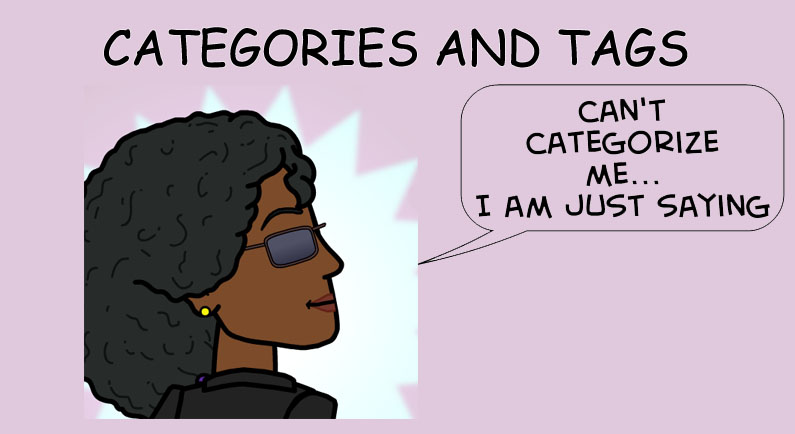WordPress Categories
WordPress Categories are used to organize your site’s information. Categories describe a post in more general. You must assign at least one category to a post.
WordPress Categories Examples
- Google+
WordPress Categories Facts
- Categories can be used to group and display like post; Examples – http://www.apartmenttherapy.com/categories
- Make it easy for your users to browse your site
- Categories are meant to encompass a group of posts and identifies general topics
- Can become a table of contents for your site
- Describes what your blog is really about
- You can create sub-categories
- Post must be categorized
- You should rename the default category “uncategorized” to “other”
- Categories can be displayed on the side bar using widgets
- General category information – http://en.support.wordpress.com/posts/categories/
WordPress Tags
WordPress Tags are used to describe your post in detail. Tags are similar to categories in that they help to organize but, they also offer a way to describe specific details of your posts.
WordPress Tags Examples
- Tools
- How-to
- Case studies
- News
WordPress Tags Facts
- Category Example: Hawaii, Possible Tags: Cheap Eats, Budget Travel, etc.
- Describe specific details of your posts
- Tags are like the site’s index words
- Micro-categorize your content
- Tags are not hierarchical
- You are not required to add any tags
- Tags are not keywords
- Capital letters do not change a tag
- The use of tags is entirely optional
- General Tag Information – http://en.support.wordpress.com/posts/tags/
WordPress Categories and Tags – Quick Review Assignment:
If you were to create a resume blog for yourself:
- Describe three categories you would create for you site
- Identify two tags for each category
- Leave your answer as a comment below.
Last updated 05/14/2016

Okay, I finally got logged in to wordpress
I should have read the category meaning before posting. Will have to edit.
Nice way to keep it organized.